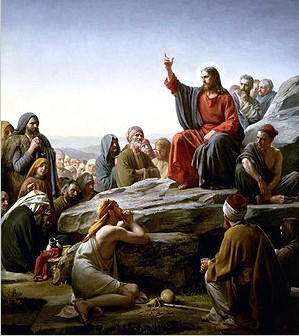 Related Articles
Related Articles
|
|
|
|
|
Drilling down on Christian issues
Many of the issues that exercise (and have exercised) Christians down the ages are dealt with on a prima facie basis without realising that there are underlying foundational questions which influence opinions higher up the doctrinal tree.
 Preamble: Whilst the following hierarchy first refers – in this instance – to the question of Sunday/Sabbath, the overall framework is applicable to many other issues over which Christians differ; some of these being baptism, salvation, church/state relationship. Preamble: Whilst the following hierarchy first refers – in this instance – to the question of Sunday/Sabbath, the overall framework is applicable to many other issues over which Christians differ; some of these being baptism, salvation, church/state relationship.
These themes will (d.v.) be explored sequentially, but in reverse order i.e. from bottom to top; from the foundational upwards.
Meanwhile, any views on the 'Sunday/Sabbath/any day' topic can be appended to the Debate on this subject.
UPDATE: May 2010 -
The first article relating to the table below is now available: it is entitled 'A Covenant-keeping God'.
UPDATE: February 2012 -
The second article in the series is now available under the title: 'The Westminster Confession; a critique'.
UPDATE: December 2014 -
The third article in the series is now available under the title: 'Theonomy; the Church ruling the World'.
|
TOPIC |
ISSUE |
(SOME) COMMENT |
Sunday/Sabbath observance
(as an example only) |
Christians differ over whether rest days are -
* Sundays
* Saturdays
* any/every day |
No evidence of equating Sunday with Sabbath is found prior to the 3rd century (New International Dictionary of the Christian church) |
|
Legalism |
The descent into enforcing a prescriptive and all-embracing behavioural compliance on believers |
Perceived as a problem in the Scottish Highlands and Islands |
|
Are the Old Testament laws binding? |
Who do the OT laws apply to? Which (if any) of these still apply in NT times for believers in Jesus/Yeshua? |
There are 613 laws; either they all apply, or none do (unless re-stated under the New Testament / Covenant). |
Theocracy / Theonomy
Christian
Reconstructionism |
Does the church have a mandate under God to press its views on the state and the secular/political process? |
Jesus said: "My kingdom is not of this world". He never tried to reform the Roman system. |
|
Westminster Confession of Faith |
Even the most staunch supporters of this document will – if they wish to retain any credibility – admit that the WCF contains some fundamental flaws and serious omissions. |
" Not for many years has ..... discussion of the theology of the Confession been so vital a matter .... as it is today." (The WCF in the church today - edited by Alasdair Herron.) |
|
Covenant Theology |
The WCF is based on an interpretational framework relating to theological constructs (Covenants of Works and Grace) in contrast to the Biblical Covenants (Noahic, Abrahamic, Mosaic, Davidic, New). |
"[The WCF] was not produced....as a Church Confession. This may account for much of the emphasis, as well as for certain striking omissions. Calvin never taught any 'covenant of works' nor would have."
(ibid.) |
|
Christians Together, 19/07/2009
|
|
|
|